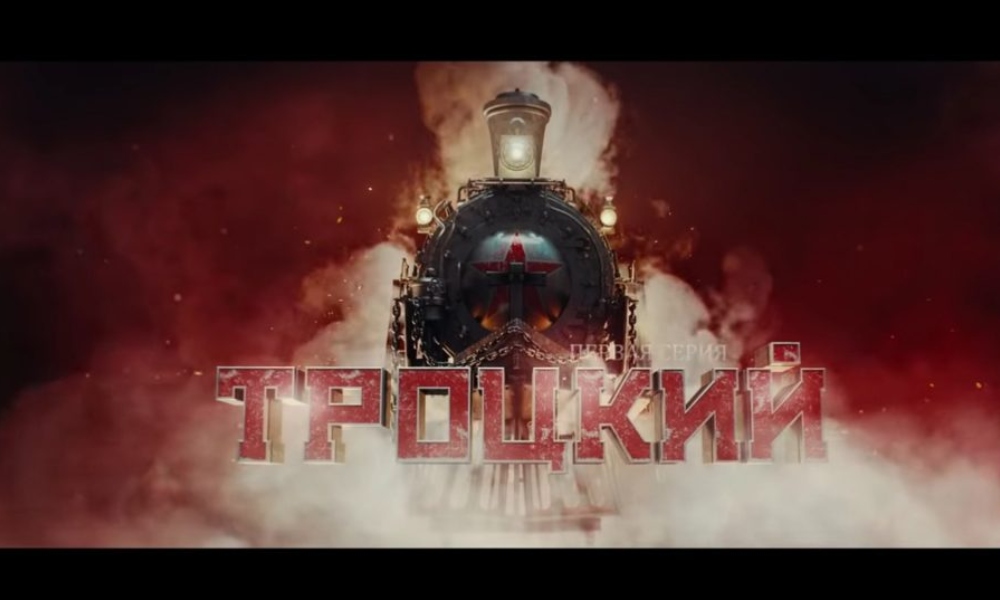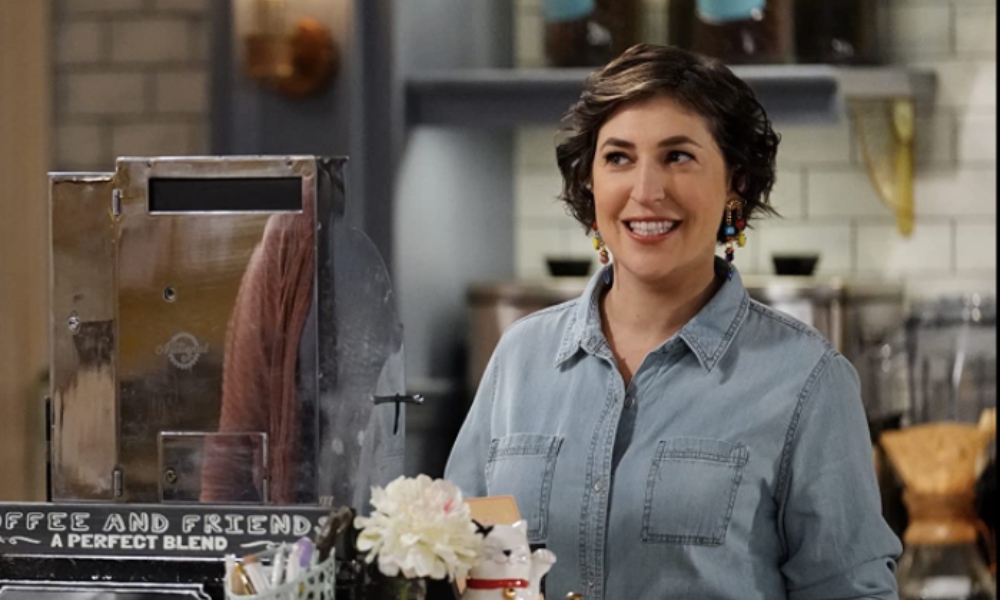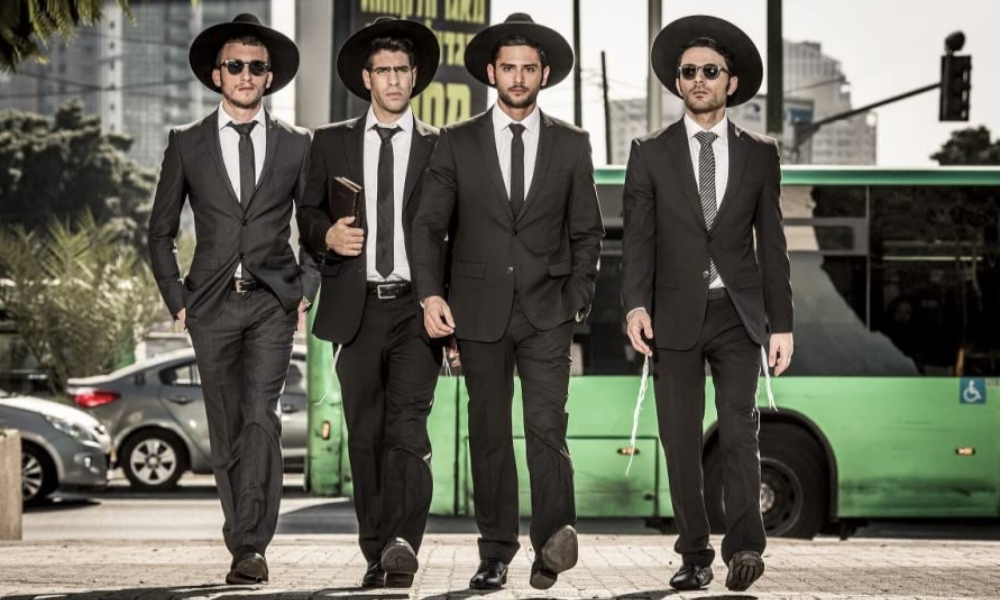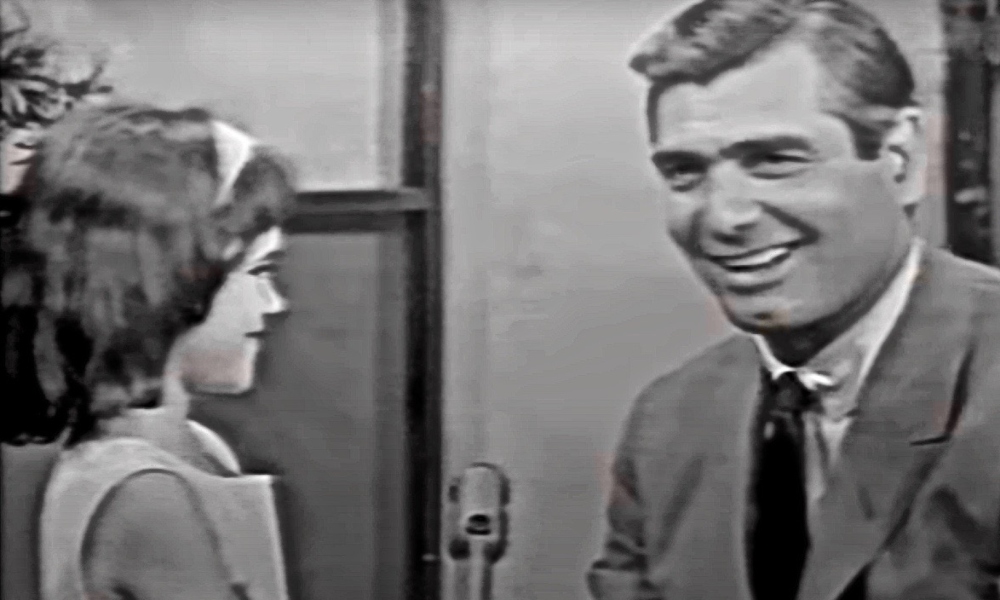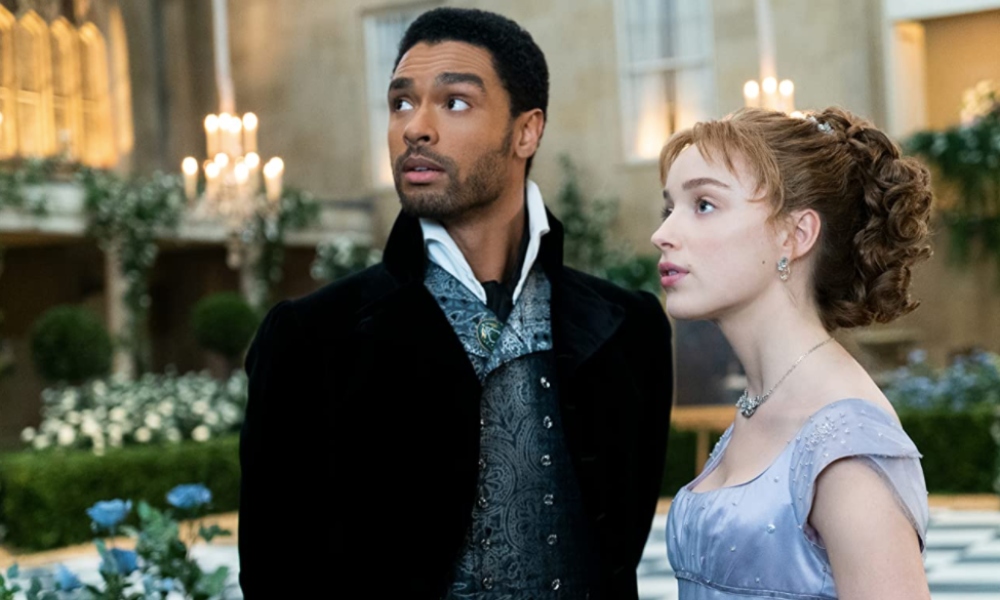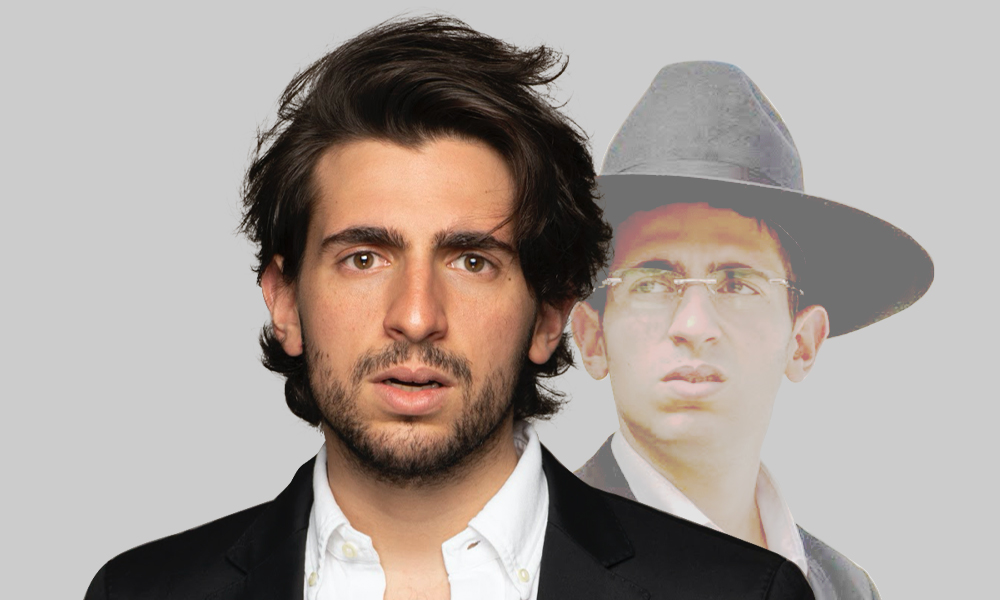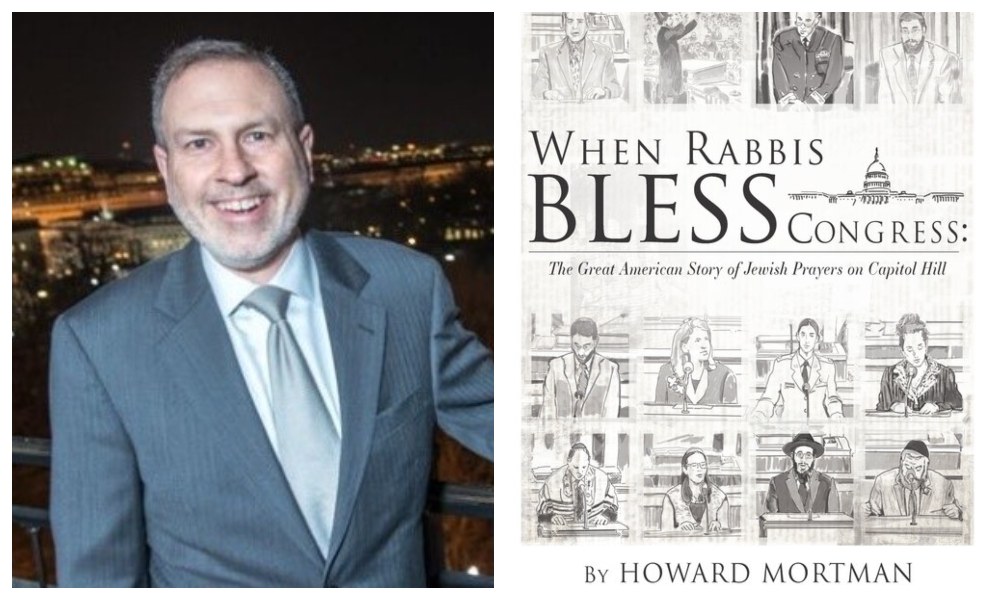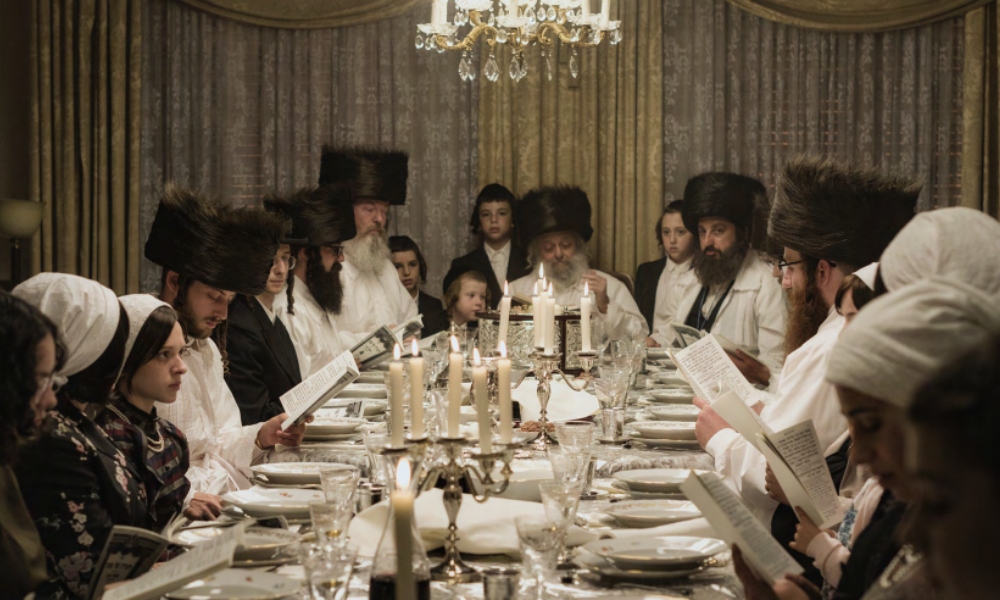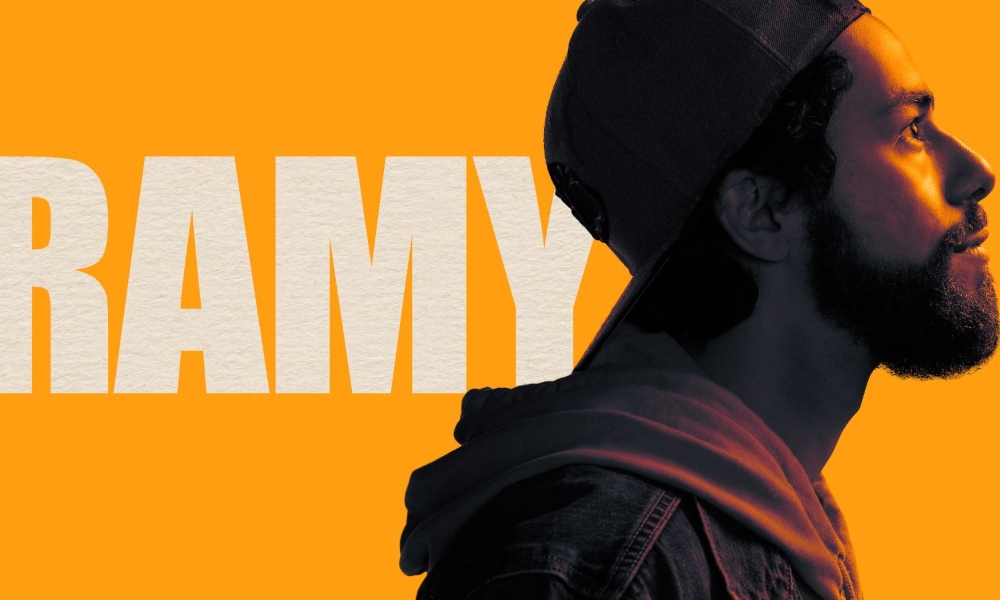As the stock of unwatched streaming content thins out, trolling the Netflix byways can yield some fascinating, if otherwise obscure, fare.
Take Trotsky, a Russian-made, Russian-language mini-series airing on Netflix. The one-season, eight-episode saga originally aired in 2017, to mark the 100th anniversary of the Bolshevik Revolution, in which Leon Trotsky played a central role. Created by Russia’s Channel One with a big budget, it won a clutch of the Russian equivalent of Emmys.
While the Netflix series is intelligently done, it does telescope history, and so is rife with oversimplification, not to mention malnourished crowd shots. So it poses no threats to such scholarly classics as Isaac Deutscher’s definitive, three-volume biography, The Prophet: The Life of Leon Trotsky.
What is surprising—and to me, compelling—about the series is its near-constant focus on Trotsky’s Judaism, and, although he was an atheist, how much his ethnic identity affected his life as a revolutionary. Ironically, some reviewers charged that this searing portrayal of Russian anti-Semitism was exaggerated, or itself anti-Semitic.
Jacobin, the Marxist journal, wrote that within the first 40-minute episode, “wildly anti-Semitic imagery from a long and terrible tradition of Russian reactionary thought has set the course for the rest of the series.”
The World Socialist web site headline read: “A degraded spectacle of historical falsification and anti-Semitism,” which the review said “portrays Trotsky as the Judeo-Bolshevik anti-Christ… presented as a young Jewish upstart who doesn’t understand the Russian people… Another fictional explanation for the formation of Trotsky’s ‘bloodthirsty’ personality is the personal torment caused by his Jewish identity.”
The headline for the web site academia.com read “The Prophet Perverted: Netflix’s Trotsky miniseries demonizes its namesake with anti-Semitic themes and rank nationalism.”
Between 1918 and 1925, one of the most powerful Jews on the face of the earth was not a Rothschild, or any of the rising German Jews on Wall Street, a counselor to the Ottoman sultan, or any elected or appointed political figure. It was a Ukrainian Jew named Lev Bronstein, better known as Leon Trotsky. As Soviet Commissar for Military and Naval Affairs, he led the young, embattled Red Army against the counter-revolutionary Whites.
At the height of his power and influence, Trotsky says in the dramatization, “The Revolution is me.”
By now, Trotsky’s story is familiar: how he roused the masses in Petrograd with his fiery oratory in 1905—a rising that nonetheless failed. Then, in October of 1917, he engineered an armed coup on behalf of the Bolsheviks, overthrowing the provisional government of liberal reformer Alexander Kerensky.
When Lenin died of a cerebral hemorrhage in 1924, Trotsky was outmaneuvered by Stalin as Lenin’s successor as leader of the Soviet Union. In the years and decades since, Trotsky’s name became anathema in Russia, used as a bludgeon for Stalin’s bloody purges. Trotsky was murdered in 1940 in Mexico City by one of Stalin’s assassins.
Set in Trotsky’s final, Mexican exile in 1940, the series Trotsky is a portrait of a rueful, resigned revolutionary with few regrets. In an admittedly preposterous narrative device, he opens up to a fictional biographer, a Canadian sympathetic to Stalin who is actually his real assassin, Ramon Mercader. The narrative flips back and forth between the Mexican present and the European and Russian past.
Trotsky’s ethnic Judaism is rarely far from the screen narrative. Early on, as an imprisoned young agitator in Odessa, he is identified by his jailers as a “mouthy kike,” although he is already a socialist, revolutionary, atheist.
The focus rarely strays from the casual, instinctive and brutal anti-Semitism of Russian peasants. Trotsky’s father, a prosperous grain merchant, is set upon by a suddenly inflamed mob. They even threaten the lives of the two small granddaughters left in the old man’s care.
Later, the father warns his revolutionary son, “You don’t even imagine what an ugly beast you are setting free. It’s a dark and scary force!… Before you know it, it will consume everything, and then it will get you…Don’t set out the fire, son. It’s a hellfire. It’s from the devil. Don’t fan the flames.”
But Trotsky is convinced the revolution will extinguish the historic prejudice.
“Stop it, Father,” he says. “You don’t understand a thing….Tomorrow is with us. It’s not as dark as you think.”
But it is—and worse—Trotsky comes to learn. Wherever he turns, however high he rises in the Bolshevik hierarchy, there it is: anti-Semitism, from peasants to revolutionaries to generals. As ingrained in the Russian character as racism is in the American character.
After the czar’s overthrow, Trotsky returns to Petrograd, only to see his two small sons from his second marriage bullied in their private school for being Jews.
One of Trotsky’s strongest and most faithful comrades, a sailor from the Kronstadt naval base, remarks admiringly, “Even if he is a Jew—such a man!”
To a late-coming, upper-class political ally who waxes nostalgic about pre-revolutionary Russia, Trotsky says, “Tell the Jews about it. They weren’t allowed to live next to you.”
In the flush of his 1917 Petrograd victory, Trotsky stands aside for Lenin to lead the revolution.
“You were right, Vladimir,” Trotsky acknowledges. “Russia will never accept a Jew as the leader.” Or, as he tells his erstwhile biographer, “A Jewish leader wouldn’t have ruled for a month in Russia.”
Instead, Trotsky asks for and receives the leadership of what remains of the Russian army, and a collection of Bolshevik militias, in order to defend the nascent Soviet state from the counter-revolutionary White forces.
“The fate of the revolution is in your hands,” Lenin tells him.
Like Lenin—but unlike the sinister, menacing young Stalin—Trotsky is almost never seen wielding a gun. Like Lenin, he orders executions, often of his own men during the post-revolutionary civil war. But while he does not take part in these killings himself, he is utterly merciless, coldly ruthless and personally fearless.
The series’ signature—and sinister—image is that of Trotsky’s armored train, literally the locomotive of history, hurtling from one weakening front with the Whites to another to shore up the Red Army.
According to the series, Trotsky was primarily responsible for instituting the Red Terror following the regime’s success in the Civil War, first by reinstating capital punishment, then moving to mass executions. The intended irony is that these actions enabled his rival Stalin, after displacing Trotsky, to give free rein to his insecurity and paranoia, perfecting them into mass murder.
In the series, during their respective rises within the Revolution, Stalin and Trotsky encounter one another on a staircase.
“We are building a new world,” Trotsky says. “We’ll build a new world for everyone.”
Stalin disagrees.
“No,” he says, “we are building the world not for everyone.” That is, not for Jews like Trotsky.
“I wanted to build a world for the people,” Trotsky explains to the ghost of his father, who visits him in Mexico, “where justice and equality reign.”
Again, his father scoffs.
“You’re a Jew, Leiba,” he says. “They’ll never accept you as one of them,” trying to illustrate his point with a Russian anecdote that begins, “A kike from a small town…”
When Lenin has a stroke, and Trotsky is outmaneuvered by Stalin in 1922, Trotsky’s fall is accompanied by all the predictable tropes: Trotsky cannot be a true communist, a street corner agitator shouts. “He is a speculator by his very Jewish nature….He doesn’t believe in Russian socialism. He doesn’t believe in the power of the Russians.”
When the series first aired in the U.S. in 2019, the headline over a Washington Post essay read: “You might be binge-watching Russian propaganda on Netflix,” although the writer acknowledged that the series was “much less outwardly propagandistic” than others produced by Channel One, which has ties to the Russian government.
Socialist publications and platforms were critical of the series, some to the point of apoplexy. Jacobin called it “a sinister rewriting of history.”
The World Socialist web site called the series a “mixture of lies, pornography, anti-communism and blatant anti-Semitism,” a “pathologically reactionary enterprise.”
As we worked our way through the series, my wife found Trotsky more and more repulsive, so she stopped watching. There were a few, slight, points in Trotsky’s favor. He listens to women—his wives and his mistresses—and takes them seriously, even when he doesn’t always take their advice. Both Sigmund Freud and artist and activist Frida Kahlo make appearances, although the Freud encounter is imaginary.
In a conversation with the now-dead Lenin, just before his assassination, Trotsky is told, “You’re like everyone else. You’re neither God nor prophet.”
Finally, asked by his biographer if he has any regrets, he answers resolutely, “I changed the world.”
Moment Magazine participates in the Amazon Associates program and earns money from qualifying purchases.

